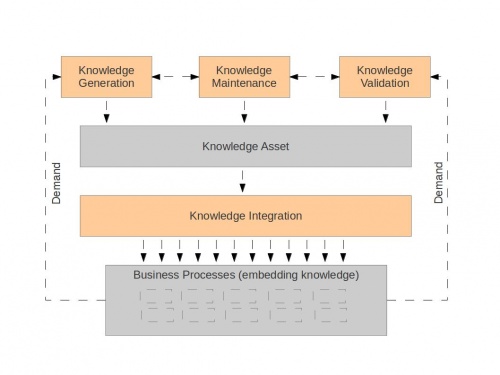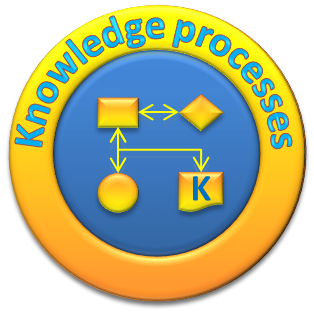Difference between revisions of "Knowledge process"
DavidBeraha (Talk | contribs) (→Four category model) |
DavidBeraha (Talk | contribs) (→First five category model) |
||
| Line 20: | Line 20: | ||
[[File:Knowledge_processes.jpg|thumb|right|500px|Fig. Knowledge processes]] | [[File:Knowledge_processes.jpg|thumb|right|500px|Fig. Knowledge processes]] | ||
| − | |||
| − | |||
| − | |||
| − | |||
| − | |||
| − | |||
| − | |||
===Second five category model=== | ===Second five category model=== | ||
Revision as of 11:54, 26 December 2013
Template:Zoltan Template:DavidBeraha
Contents
Definition
Knowledge process is Knowledge process is a process that acts on /or with knowledge, either individual knowledge or organizational knowledge.
Summary
Knowledge processes include knowledge generation, validation, maintenance and integration activities with sub processes like acquiring, transforming, developing, disseminating, using, sharing and preserving knowledge as a way to meet specified internal demand that can ultimately improve organizational learning. In this regard, knowledge processes help an organization to gain insight and understanding from best practices.
Description
There are many different definitions of knowledge processes used in the literature. However for Nuclear knowledge management purposes we describe more widely used and accepted definitions into four primary knowledge processes by which knowledge is generated, validated, maintained and integrated in organizations.
Second five category model
First six category model
In Fig 2, an alternative categorization of the knowledge processes is presented.


